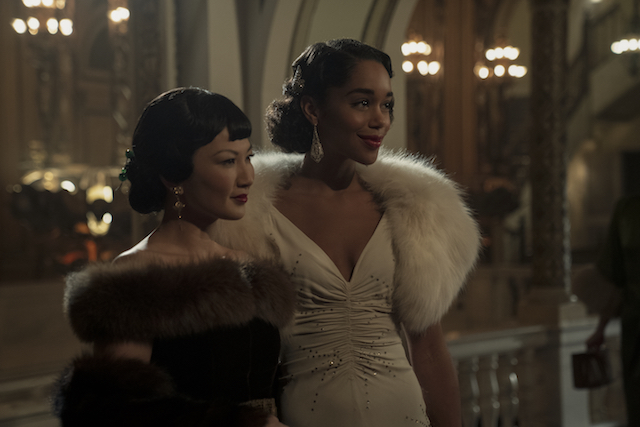
Spoilers ahead!
Ryan Murphy’s limited Netflix series “Hollywood” is full of moments that required actively suspending your disbelief but, that’s only to be expected from a show written with his constant collaborator, Ian Brennan. The duo that gave us “Glee,” “Scream Queens” and “The Politician” has offered us a rewrite of post-World War II Hollywood that puts a spotlight on its margins and takes it upon itself to champion their voices against the industry’s harsh and often discriminatory system. (There’s a Twitter discourse right now about whether or not it’s enough for art to simply reflect reality.) “Hollywood” is a nice (but not the best) example of how narratives that portray triumphs instead of aggrandizing defeats could be better for giving voice to marginalized characters.
The show follows the stories of war veteran turned sex worker trying to break into the big screen Jack Castello (David Corenswet), half-Filipino aspiring director Raymond Ainsley (Darren Criss), gay, black screenwriter turning tricks Archie Coleman (Jeremy Pope), contending for the title of first black lead actress Camille Washington (Laura Harrier) and a fictionalized Rock Hudson (Jake Picking). Perhaps the real hook of the show is how it borrows from real-life Tinseltown players and unveils, or at least ponders, bits of their private horrors. It was thrilling to watch the cast try to bring the likes of Marlon Brando, Vivien Leigh and Marilyn Monroe to life. Casting Broadway legend Patti Lupone as a pioneering studio head also helped the show’s case.
However, “Hollywood” might have relied too heavily on the novelty of its tale. Often the case with Murphy and Brennan’s shows, the audience is asked to just follow along despite it making sizable leaps for convenience’s sake. There were a couple of Jaida-esque look-over-there scenes such as Eleanor Roosevelt deciding to visit the studio and Ernie calling up old-timers to make-up the 25 grand needed for that giant H sign. A big chunk of the lines on the series is too on-the-nose, often depending on the actor to make a heavy scene work since there wasn’t much of a build-up throughout the show’s seven episodes. If the team had more elbow room, maybe it would have seemed less rushed.
Brennan said in a Netflix exclusive interview, “But about three episodes in, we hit a wall and had to acknowledge, ‘Well, Camille can’t get the lead role because that’s not what would have happened. Once the studio finds out Archie’s black, the movie’s going to be taken away from him.’ Once we hit that wall, we realized that just telling the accurate historical version of this story felt dirty and exploitative.” The wall he talked about and where they decided to jump over it were noticeable. Still, that doesn’t take away from the fact that there were some genuinely moving scenes like when Archie gave up on playing by the same rules that are stopping him from taking part in the game.
Meg was a metaphor for the show, one that asks what message a piece of art that beats down its marginalized characters is sending to the world. While Murphy’s progressive revisionism warrants a small celebration, its contrived ending turned it into an ineffective and risky denial of the actual strides people have made to get us to where we are now. We want to see people overcome prejudice and hatred but not as a mere fairytale where they didn’t have a hand in fighting for it.
Photo courtesy of Netflix
Follow Preen on Facebook, Instagram, Twitter, YouTube, and Viber
Related Stories:
‘Extracurricular’ is a dark and messy teen crime drama you should stream with care
‘A Secret Love’ is more than just a 65-year hidden lesbian romance
Apart from the catfishing, ‘The Half of It’ is the romcom to watch if you’re looking for representation
‘Circus of Books’ Review: An acceptance v.s. tolerance family drama with gay porn history on the side

